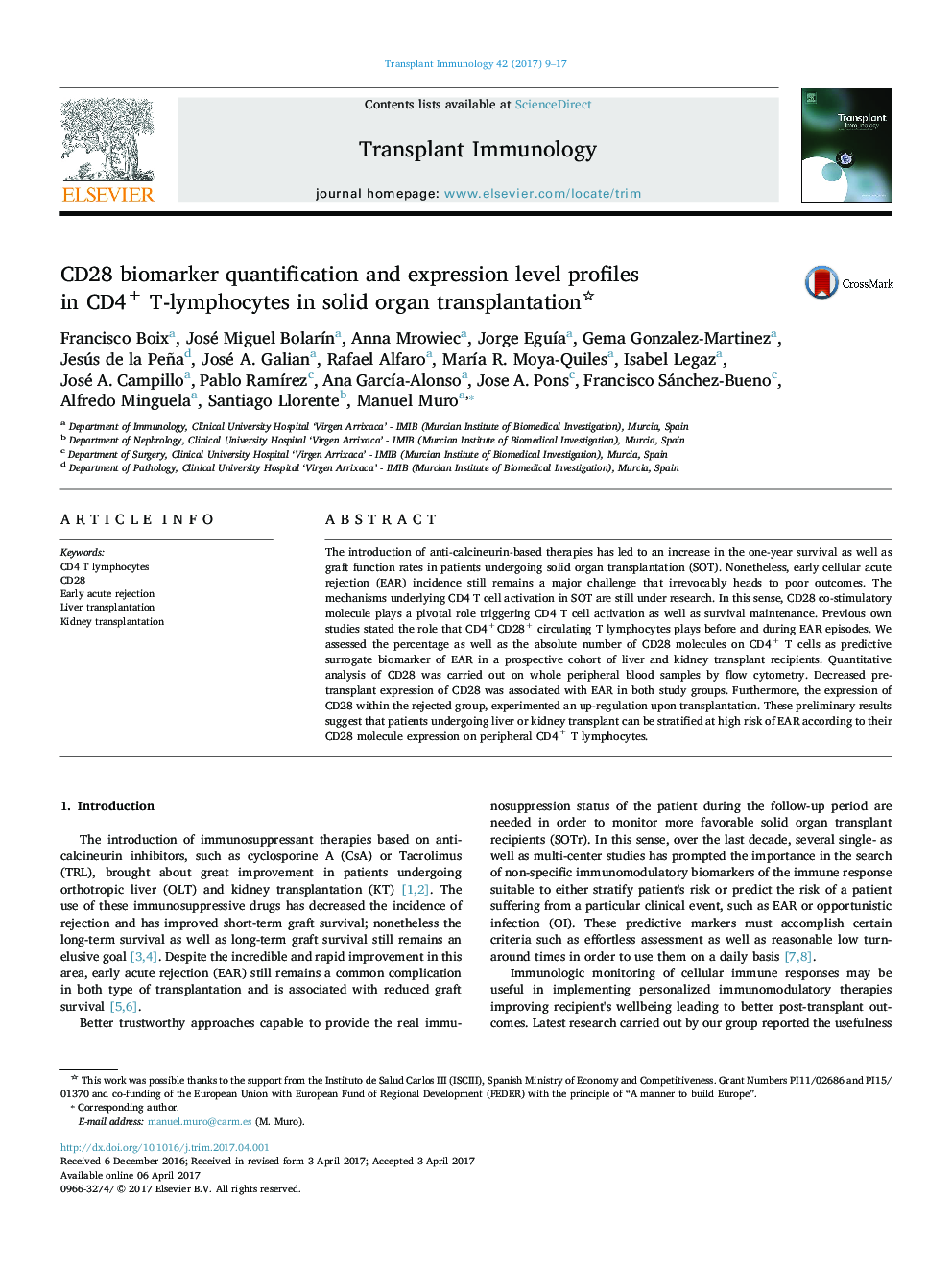| Article ID | Journal | Published Year | Pages | File Type |
|---|---|---|---|---|
| 5670448 | Transplant Immunology | 2017 | 9 Pages |
â¢The percentage and absolute number of CD28 molecules on CD4+ T-cells validated as predictive surrogate biomarker of EAR in liver and kidney transplant recipients.â¢Decreased pre-transplant expression of CD28 was associated with EAR in both study groups.â¢The expression of CD28 within the rejected group, experimented an up-regulation upon transplantation.
The introduction of anti-calcineurin-based therapies has led to an increase in the one-year survival as well as graft function rates in patients undergoing solid organ transplantation (SOT). Nonetheless, early cellular acute rejection (EAR) incidence still remains a major challenge that irrevocably heads to poor outcomes. The mechanisms underlying CD4 T cell activation in SOT are still under research. In this sense, CD28 co-stimulatory molecule plays a pivotal role triggering CD4 T cell activation as well as survival maintenance. Previous own studies stated the role that CD4+Â CD28+ circulating T lymphocytes plays before and during EAR episodes. We assessed the percentage as well as the absolute number of CD28 molecules on CD4+ T cells as predictive surrogate biomarker of EAR in a prospective cohort of liver and kidney transplant recipients. Quantitative analysis of CD28 was carried out on whole peripheral blood samples by flow cytometry. Decreased pre-transplant expression of CD28 was associated with EAR in both study groups. Furthermore, the expression of CD28 within the rejected group, experimented an up-regulation upon transplantation. These preliminary results suggest that patients undergoing liver or kidney transplant can be stratified at high risk of EAR according to their CD28 molecule expression on peripheral CD4+ T lymphocytes.
